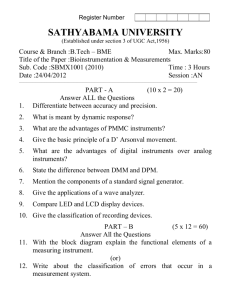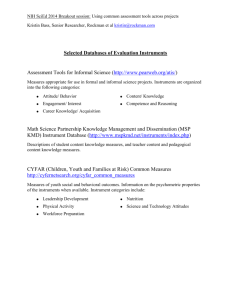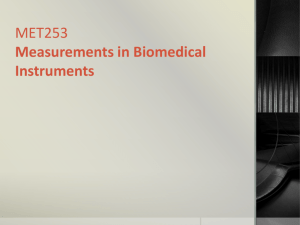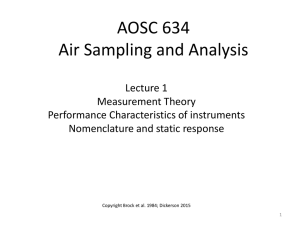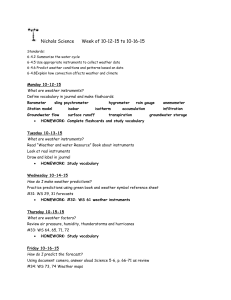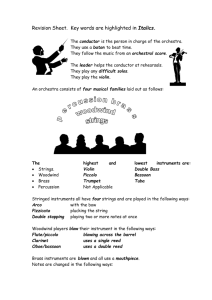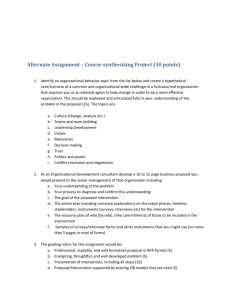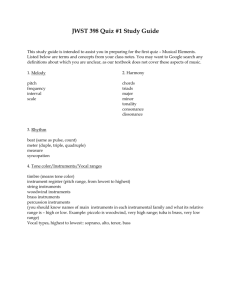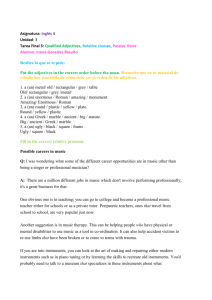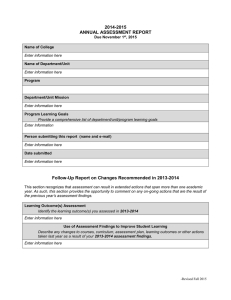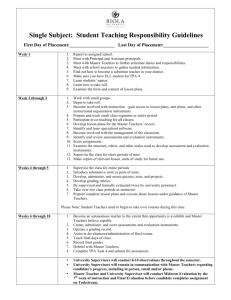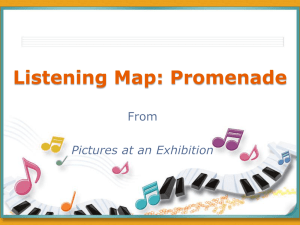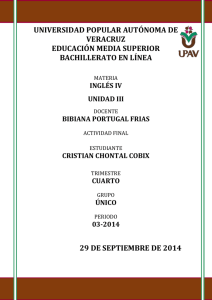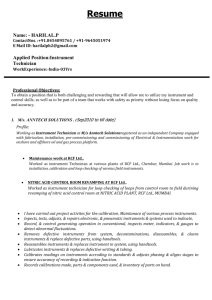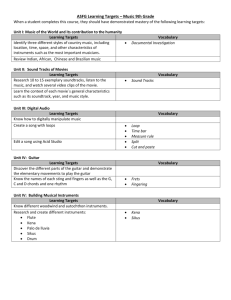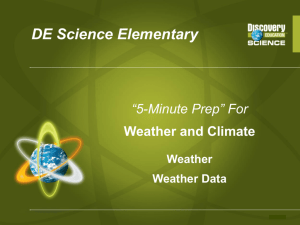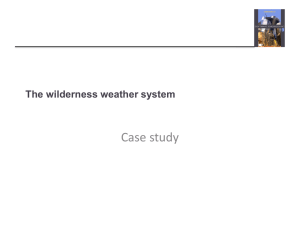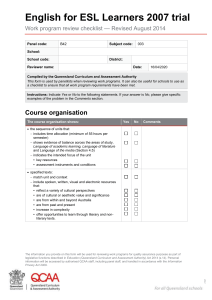Student activity sheet (114.11 KB DOCX)
advertisement
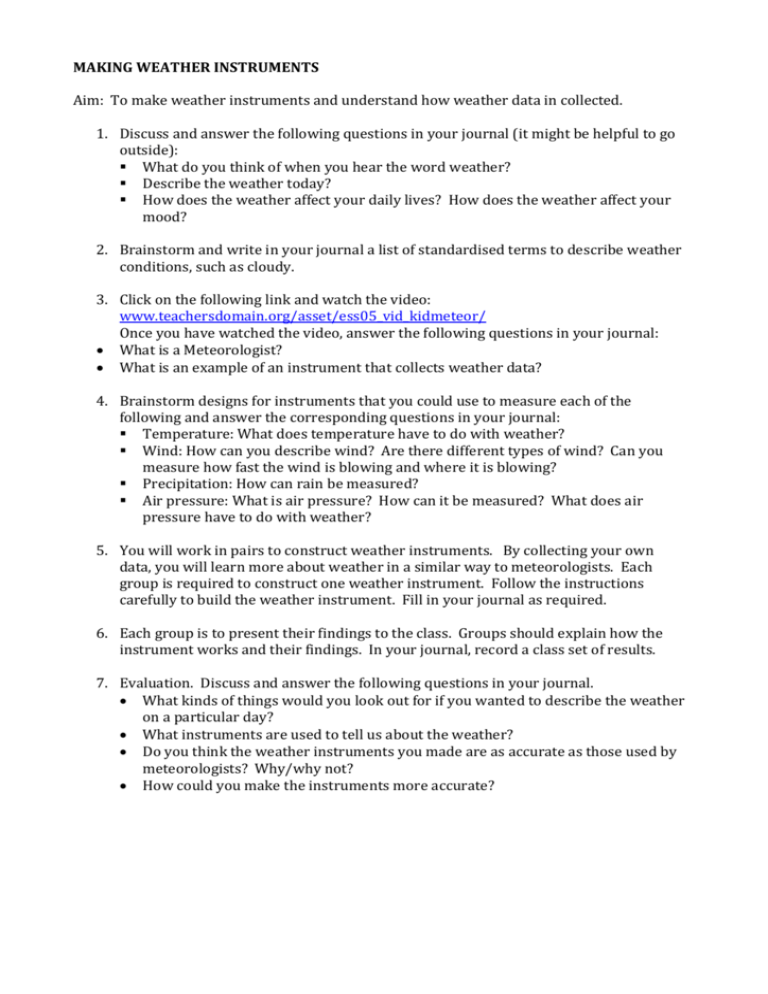
MAKING WEATHER INSTRUMENTS Aim: To make weather instruments and understand how weather data in collected. 1. Discuss and answer the following questions in your journal (it might be helpful to go outside): What do you think of when you hear the word weather? Describe the weather today? How does the weather affect your daily lives? How does the weather affect your mood? 2. Brainstorm and write in your journal a list of standardised terms to describe weather conditions, such as cloudy. 3. Click on the following link and watch the video: www.teachersdomain.org/asset/ess05_vid_kidmeteor/ Once you have watched the video, answer the following questions in your journal: What is a Meteorologist? What is an example of an instrument that collects weather data? 4. Brainstorm designs for instruments that you could use to measure each of the following and answer the corresponding questions in your journal: Temperature: What does temperature have to do with weather? Wind: How can you describe wind? Are there different types of wind? Can you measure how fast the wind is blowing and where it is blowing? Precipitation: How can rain be measured? Air pressure: What is air pressure? How can it be measured? What does air pressure have to do with weather? 5. You will work in pairs to construct weather instruments. By collecting your own data, you will learn more about weather in a similar way to meteorologists. Each group is required to construct one weather instrument. Follow the instructions carefully to build the weather instrument. Fill in your journal as required. 6. Each group is to present their findings to the class. Groups should explain how the instrument works and their findings. In your journal, record a class set of results. 7. Evaluation. Discuss and answer the following questions in your journal. What kinds of things would you look out for if you wanted to describe the weather on a particular day? What instruments are used to tell us about the weather? Do you think the weather instruments you made are as accurate as those used by meteorologists? Why/why not? How could you make the instruments more accurate?


